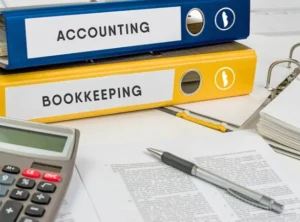Obtaining a business loan isn’t just about having a good idea or an ambitious plan, it’s about showing proof that your business is financially healthy. Imagine trying to get a mortgage without proof of income or credit history. It’s the same with business loans. Without solid financial records, your chances of approval drop significantly. This is where bookkeeping for business loans becomes not just helpful, but essential.
In Canada, lenders want clarity, consistency, and confidence before they lend money. That confidence comes from your numbers. Whether you’re applying for a small business loan, a line of credit, or government funding, the first thing lenders evaluate is how your business handles money.
Why Bookkeeping for Business Loans Is a Game-Changer
Lenders assess financial risk before approving a loan. They want to see that your business earns consistently, manages cash responsibly, and stays on top of obligations like taxes and debt payments. All of this is reflected in your books.
Proper bookkeeping for business loans gives you clear financial statements like profit and loss reports, balance sheets, and cash flow summaries. These documents help lenders evaluate your ability to repay what you borrow. If your records are incomplete or disorganized, it creates doubt, something lenders try to avoid.
What Canadian Lenders Look for in Loan Applications
When reviewing your application, Canadian lenders typically focus on:
1. Verified Revenue and Profitability
They want to know if your business is making money. An income statement prepared through proper bookkeeping shows exactly how much you earn, spend, and keep.
2. Positive and Predictable Cash Flow
Even profitable businesses can fail if they don’t manage cash flow. Lenders want to see that you have enough cash coming in to meet expenses and repay a loan.
3. Clean Balance Sheets
Your balance sheet outlines assets, liabilities, and net worth. It shows how much you own, what you owe, and whether your business is growing.
4. CRA Compliance and Tax History
Late filings or missed GST/HST payments are red flags. Lenders check if your taxes are current, which can only be verified through accurate financial tracking.
For example, government-backed options like the Canada Small Business Financing Program may provide extra lending flexibility for small businesses with limited collateral. However, even with such programs, detailed and accurate bookkeeping remains essential to meet eligibility and demonstrate repayment ability.
How Poor Bookkeeping Can Sabotage Loan Approval
If your records are missing, outdated, or inaccurate, you might face:
- Delays in processing your application
- Rejection due to unclear financial standing
- Higher interest rates as compensation for perceived risk
Some lenders may approve loans with weaker documentation, but often at unfavorable terms. Bookkeeping for business loans not only improves your approval odds but can help you secure better rates and repayment conditions.
Essential Financial Reports Required for Business Loans
Make sure your bookkeeping includes these key reports:
Income Statement (Profit & Loss Report)
Shows how much money you’ve earned and spent over a specific period.
Balance Sheet
Gives a snapshot of what your business owns and owes at any point in time.
Cash Flow Statement
Breaks down how money moves in and out of your business. This is critical for lenders evaluating repayment potential.
Tax Filings
Have your recent GST/HST filings and corporate tax returns ready. These validate your revenue and tax compliance.
📌 Source: CRA – Keeping Records
Best Practices in Bookkeeping Before Applying for Business Loans
To make your application strong and reduce risk of rejection, focus on these:
- Stay consistent: Record transactions regularly. Don’t wait until year-end.
- Separate personal and business finances: This keeps records clean and credible.
- Use cloud accounting software: Tools like QuickBooks Online, Xero, or Wave help you generate real-time reports and organize documents properly.
- Hire expert bookkeeping services: Especially during the loan process, having a professional ensures accuracy and credibility.
Benefits of Using Professional Bookkeeping Services for Business Loans
Bookkeeping isn’t just about tracking expenses. It’s about understanding your financial position and presenting it with confidence. That’s where professional bookkeeping services come in.
Why Choose Expert Bookkeeping for Business Loans?
- Accurate records reduce the risk of errors
- You get all required reports in lender-ready format
- Professionals understand loan criteria and can highlight strengths
- Less stress and more time to focus on your business
Frequently Asked Questions About Bookkeeping and Business Loans
Can I get a business loan without formal bookkeeping?
You might qualify with alternative lenders, but your chances and terms will be far better with proper documentation.
How far back do lenders want to see records?
Usually at least 12 months, but 24 months is ideal for a stronger application.
Is it worth hiring a bookkeeper just for a loan?
Yes. Even a short-term investment in bookkeeping services can save money by improving loan terms and avoiding costly delays.
Bookkeeping for Small Business Loans vs. Large Credit Applications
If you’re applying for a small business loan (e.g. under $50,000), lenders may require less documentation but clean, organized books still make a big difference. For larger loans or government funding, your bookkeeping must meet stricter standards. This includes audited financial statements, long-term debt tracking, and monthly reporting.
Whether your loan is large or small, your books should be ready to tell your financial story clearly.
Final Thoughts: Why Bookkeeping for Business Loans Is Worth the Effort
Your business might have the potential to grow, but without clear financials, that potential may never get funded. Bookkeeping for business loans ensures that your financial records give lenders the confidence they need to say “yes.”
Accurate bookkeeping helps you avoid delays, present a strong case, and unlock better loan terms. More than that, it gives you a deeper understanding of how your business is doing and where it’s headed.
👉 Need help preparing your financials? Contact AccTax today to learn how our bookkeeping services can help you secure the funding your business needs to grow.
Connect with us:




